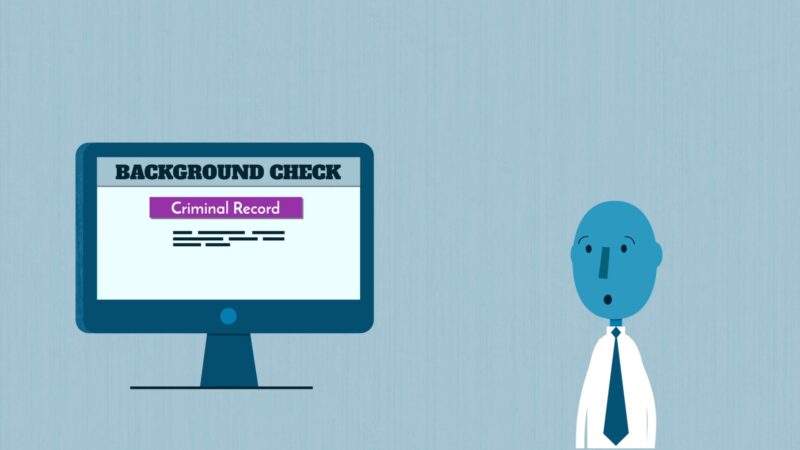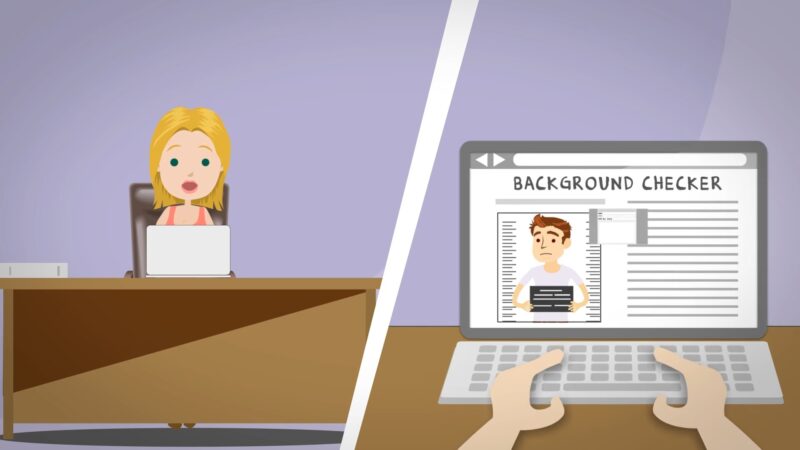Background checks are processes that involve collecting and verifying information about a person’s past, such as their criminal record, education, employment history, credit history, and more. They are often used by employers, landlords, lenders, and others to assess the suitability, reliability, and trustworthiness of an individual for a certain purpose.
However, background checks also raise important questions about the legal and ethical implications of accessing and using personal data. How do background checks protect the interests and safety of the parties involved?
What are the rights and responsibilities of the subjects and the users of background checks? How can background checks be conducted in a fair, transparent, and respectful manner?
These are some of the issues that this essay will explore, drawing on relevant sources and examples.
Checking Police and Court Records

One of the first places to look for pending criminal charges is the local police department.
Local Police Records
You can request a copy of your police report, which may contain information about the incident, the arrest, and the investigation. However, some police reports may not be available to the public if they are part of an ongoing case or a sealed indictment.
To request a police report, you may need to fill out a form, provide identification, and pay a fee.
Local Court Records
Another source of information is the local court clerk, who keeps records of all court cases in the jurisdiction. You can search for your name in the court database, which may show you the date, time, and location of your hearing, as well as the charges and the status of the case.
You can also request a copy of your court file, which may contain more details about the evidence, the witnesses, and the plea. To access the court records, you may need to visit the court in person, call the clerk, or use the online portal.
Out-of-State Records
If you are facing charges in another state, you may need to check the state police and the state court records as well. Each state has its procedures and requirements for accessing these records, so you may need to contact the relevant agencies or visit their websites for more information.
Online Resources
Another way to check for pending criminal charges is to use online platforms that aggregate nationwide criminal records. These platforms may include databases of arrest warrants, inmate records, sex offender registries, and criminal histories.
However, these platforms may not be updated regularly, may not cover all jurisdictions, and may charge a fee for their services. Therefore, you should use them with caution and verify the information with official sources.
Some states also have specific websites that allow you to search for pending criminal charges in their courts. For example, in Virginia, you can go to the Virginia Judicial System website and click on “Case Status and Information” to find out if you have any pending cases in the district or circuit courts.
You can search by your name, case number, or hearing date. You can also view the case details, such as the charges, the disposition, and the sentencing.
The Scope of Charges
As you check for pending criminal charges, you may encounter different terms and categories that describe the nature and the status of the charges. It is important to understand what these terms mean, as they may affect your rights, your options, and your consequences.
Misdemeanors vs. Felonies
One of the main distinctions is between misdemeanors and felonies. Misdemeanors are less serious offenses that are punishable by up to a year in jail and a fine.
Felonies are more serious offenses that are punishable by more than a year in prison and a larger fine. Some examples of misdemeanors are petty theft, trespassing, and disorderly conduct. Some examples of felonies are murder, rape, and robbery.
Pending, Convicted, and Dismissed Charges
Another distinction is between pending, convicted, and dismissed charges. Pending charges are charges that have not been resolved yet, either by a trial, a plea bargain, or a dismissal.
Convicted charges are charges that have resulted in a guilty verdict or a guilty plea. Dismissed charges are charges that have been dropped or withdrawn by the prosecutor or the judge.
Some reasons for dismissing charges are lack of evidence, procedural errors, or cooperation with the authorities.
Knowledge is Power
Knowing how to check for pending criminal charges can help you prepare for your defense, protect your rights, and avoid further complications. However, if you are facing criminal charges, you should also consult a qualified criminal defense attorney who can advise you on the best course of action and represent you in court.
Implications of Pending Charges

Pending charges can significantly affect your employment, potentially leading to suspension, termination, or difficulty in securing new jobs. Employers often conduct background checks and may view pending charges negatively, affecting your career advancement.
It’s crucial to communicate openly with current and potential employers and seek legal advice to navigate employment-related challenges.
Legal Presumption and Background Checks
Background checks can reveal pending charges, which might adversely impact public perception and opportunities in various fields like housing, education, and government positions. Despite the legal presumption of innocence, public opinion can be less forgiving.
It’s important to ensure the accuracy of your background records and explore options for record sealing or expungement with legal assistance.
Resolving Charges
Pending charges can limit life opportunities and cause emotional distress. Promptly resolving these charges through legal avenues, such as plea bargains or diversion programs, is vital.
Consultation with a lawyer is essential to protect your interests and explore options like alternative sentencing. Being proactive and informed can help you navigate the implications of pending charges and move forward with your life.
FAQ
Can background checks reveal expunged or sealed records?
Generally, expunged or sealed records are not accessible through standard background checks. However, certain exceptions exist for specific types of checks, like those for high-level security clearances.
Do background checks include information on traffic violations?
It depends on the depth of the check. Basic checks might not include minor traffic offenses, but more thorough checks, especially for roles involving driving, might report these details.
How long do background checks typically take to complete?
The duration varies based on the check’s complexity. Simple checks can take a few days, while more comprehensive ones might take several weeks.
Are international criminal records included in standard background checks?
Standard checks usually don’t cover international criminal records due to varying legal systems and data access limitations. Specialized checks might be needed for international histories.
Can individuals perform background checks on themselves?
Yes, individuals can request background checks on themselves to verify the accuracy of the information and understand what others might see about them.
How do pending charges affect background checks for rental applications?
For rental applications, landlords might view pending charges as a potential risk factor, affecting the applicant’s approval. The impact largely depends on the charge’s nature and the landlord’s discretion.
Final Words
Background checks are comprehensive processes used for assessing someone’s history, including criminal records, education, and employment. These checks, crucial for employers and landlords, aim to evaluate a person’s reliability and trustworthiness.
However, they raise legal and ethical concerns about personal data use. The essay will delve into how background checks balance safety and individual rights, exploring the rights and responsibilities of those subjected to and conducting these checks, and discussing the fair and respectful implementation of these processes.
